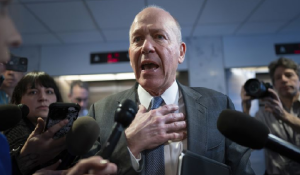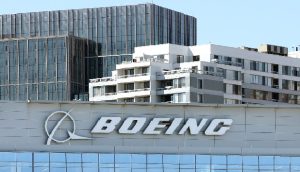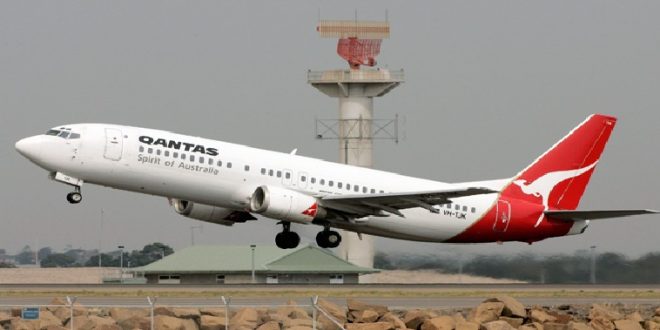05-06-2024
SYDNET/ DUBAI: Australian airline Qantas (QAN.AX), opens new tab on Tuesday backed Boeing to bounce back from an unprecedented crisis that has led to an overhaul of the American plane-maker’s management and drawn scrutiny and criticism from some of its biggest customers.
Boeing is searching for a new chief executive after announcing that Dave Calhoun would step down by the end of the year following back-to-back crises that were exacerbated by the blowout of the a loose door plug on a Boeing plane in January.
 “Aviation needs a strong Boeing,” Qantas Chief Executive Vanessa Hudson told reporters at an airline summit in Dubai.
“Aviation needs a strong Boeing,” Qantas Chief Executive Vanessa Hudson told reporters at an airline summit in Dubai.
Hudson, who took over as the head of Australia’s biggest airline last year, said she had spoken with Boeing management and was confident they are focused on addressing quality issues.
“Everything that we’ve heard from Boeing gives me the sense that they will get on top of it,” she said. Asked about what qualities Boeing’s next CEO should have, Hudson said any chief executive should be connected with frontline employees, customers and key stakeholders. “I would suggest that for Boeing, that they are important qualities to really understand how a basic organization operates,” she said.
Meanwhile, the boss of one of the world’s biggest airlines says he’s expecting Boeing’s manufacturing issues to take up to five years to resolve, and they have already cost carriers billions of dollars.
The president of Emirates, Sir Tim Clark, said on Tuesday that Boeing’s issues were self-created and had wreaked havoc for airlines all over the world.
The US-based manufacturer has been hit by supply chain hiccups since the COVID-19 pandemic and is in the midst of a quality assurance and regulatory restructure after a door plug blew out on an Alaska Airlines Boeing 737 Max-9 earlier this year.
Emirates has orders for 235 Boeing aircraft, a mix of 777X and Dreamliners. Clark said some of the aircraft are five years late, meaning Emirates has to undergo a $3 billion retrofitting program of its existing fleet of Airbus A380s instead.
 “We need our aeroplanes. We cannot face constant delays, we’ve got a business to run, and the bill for refurbishing all these aeroplanes should be put at Boeing’s door.”
“We need our aeroplanes. We cannot face constant delays, we’ve got a business to run, and the bill for refurbishing all these aeroplanes should be put at Boeing’s door.”
Clark said he would be meeting Boeing’s chief operating officer, Stephanie Pope, this week for an update on its order. He’s one of 150 airline leaders in Dubai for the International Air Transport Association’s annual meeting, with the bulk unsure when they’ll be able to get billions of dollars in late aircraft orders from Airbus and Boeing.
“The manifestation of the situation (Boeing) finds themselves in today is a result of them taking their eye off the ball, and governments taking their eye off the process … If Boeing slows the supply chain it also affects Airbus in France and Germany,” Clark said.
The US aviation regulator, the Federal Aviation Administration, is yet to allow Boeing to increase its 737 Max production and said last week the manufacturer was unlikely to be able to ramp up operations for months. Boeing has released an 11-page executive summary of its improvement plan following multiple audits from the regulator, and is in the midst of overhauling its processes.
Australia’s second-biggest airline, Virgin Australia, told this masthead in March that 31 of its Max aircraft (a mix of 737 Max-8s and Max-10s) would not arrive on schedule, with the Max-10s not expected until 2026 at the earliest and six Max-8s unlikely to arrive until next year. Virgin has suffered from poor on-time performance and a high rate of flight cancellations for most of the past year which has been exacerbated by its lack of spare aircraft. (Int’l Monitoring Desk)
 Pressmediaofindia
Pressmediaofindia




